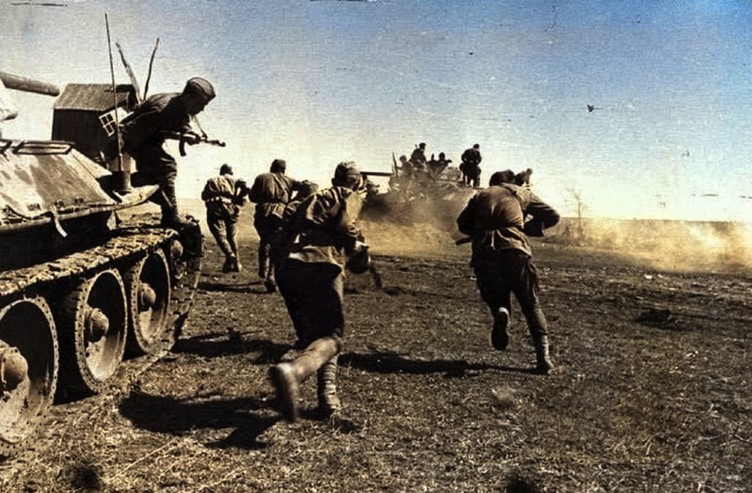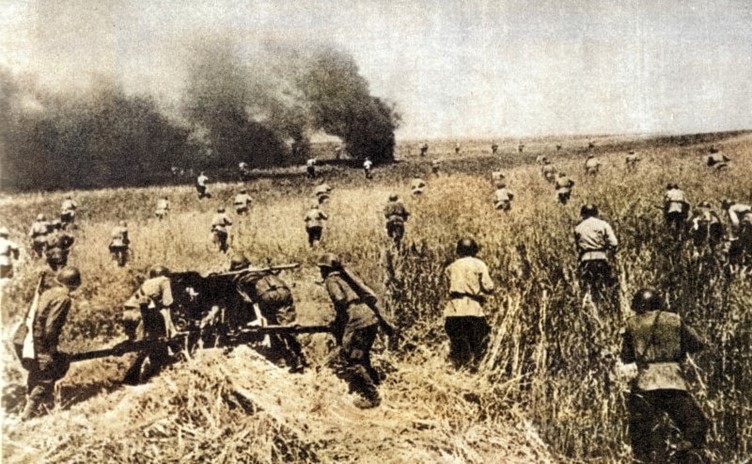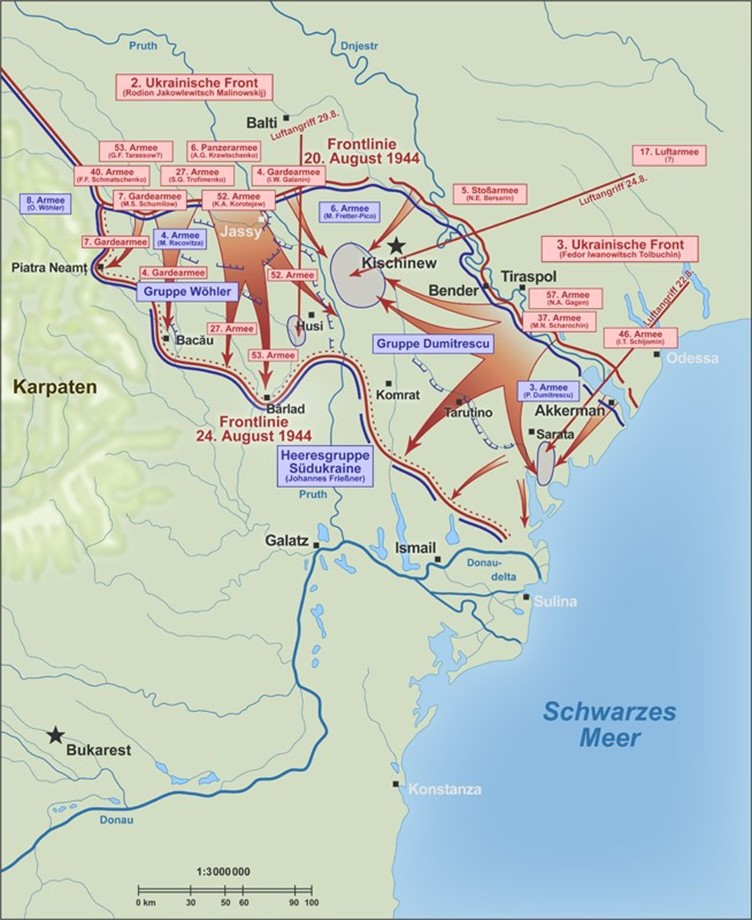By Andrius Dirmeikis
On this day 77 years ago:
The “Black” 20 August 1944 in German military history- the beginning of German catastrophe in Romania

“From 0700 to 0935 there followed a bombardment more powerful than any experienced so far, as well as air attacks. The division’s forward command post on a hill west of Carnateni also lay under heavy Russian artillery fire. The view from there was terrifying. The entire Dnestr valley and the right divisional sector were shrouded in a single cloud of smoke. The sun, which had been shining from a clear, blue summer sky, had been obscured. The enemy barrage was followed by a massed infantry attack in an extremely small area by approximately two Russian rifle divisions with tank support. As a result of the barrage fire the 81st Grenadier Regiment already had losses of over fifty percent in troops and equipment. Most of the remaining troops in the positions were overwhelmed in bitter close-quarters fighting. Only twenty-eight men from 1st Battalion, 81st Regiment reached the rear as stragglers, where they were picked up. The command post of the 81st Regiment was completely destroyed in hand-to-hand fighting.”
– History of the Wehrmacht’s 15th Infantry Division.
On this day all hell breaks loose for the German forces in Romania, as the frontlines of the German Army Group South Ukraine are subjected to powerful attacks of the Soviet 2nd and 3rd Ukrainian Fronts. The Soviet Jassy–Kishinev Offensive has began.

In the offensive lasting barely 2 weeks, the German 6th Army was encircled and destroyed for the second time in the giant pocket between the Dniester and Prut rivers, the first time being at Stalingrad in February 1943.

As a result, 21 of 28 German divisions of Army Group South Ukraine in Romania were destroyed. In the process, the entire army group was destroyed with only remnants and several intact divisions remaining, which found themselves outside the pocket when the Soviet pincers closed. Leftovers then retreated into Hungary.
It was a German catastrophe of enormous proportions, comparable to that of Stalingrad and only surpassed by Operation Bagration.
The Soviet offensive prompted a coup in Romania, which was led by the 22-year old King Michael I, after which Romania joined the Allied side.
The speed and scale of the German collapse, as well as the Romanian coup, led to hasty withdrawal process of German forces from the Balkan peninsula in order not
